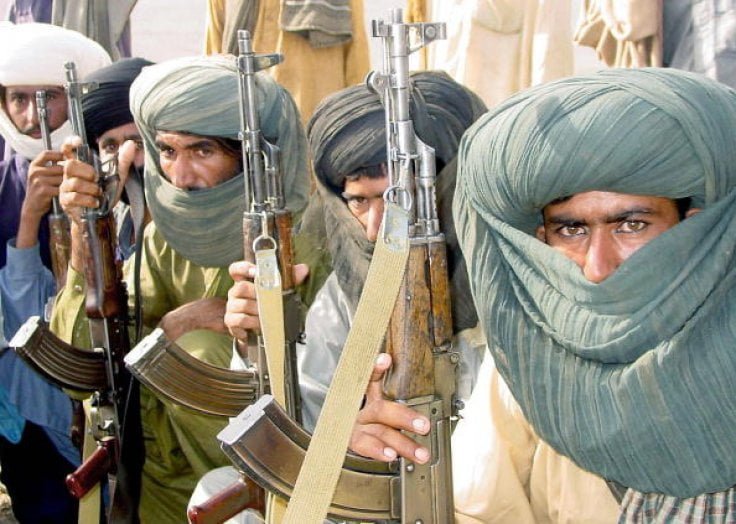Arsalan Kakar
The ongoing armed struggle in Balochistan has long posed a serious challenge to Pakistan’s internal stability, yet it remains deeply misunderstood in both political discourse and public imagination. While grievances of political exclusion, economic deprivation, and cultural marginalization in Balochistan are real and historically rooted, the path of violent militancy chosen by some groups does not lead toward resolution—it instead deepens the crisis, weakens legitimate demands, and isolates the Baloch cause from broader national and global sympathy.
There is no doubt that Balochistan has faced decades of neglect, underdevelopment, and political disenfranchisement. Successive governments have failed to ensure equitable distribution of resources, local participation in governance, and respect for cultural identity. These issues merit urgent attention. However, the response to these injustices cannot and must not be armed rebellion. Violence, particularly when it targets innocent civilians and public infrastructure, delegitimizes the movement and provides the state with justification to crack down with full force.
Several Baloch militant groups have crossed this line by engaging in indiscriminate attacks that harm ordinary citizens. These actions do not advance the cause of justice or autonomy; rather, they erode its moral foundation. A movement that lacks moral clarity, that sheds blood in the name of liberation, will eventually lose both its support base and its strategic coherence. What’s more, these attacks create a climate of fear and suspicion, allowing the state to assert its authority with greater impunity.
It is important to understand that no non-state militant group can successfully defeat a modern, militarily capable state like Pakistan. The Pakistani state has formidable coercive tools at its disposal—military, intelligence, judicial, and administrative—and it can, when it decides to, assert control over any territory. Armed struggle against such a state does not result in liberation; it leads to destruction, dislocation, and decades of suffering for the very people in whose name the struggle is being waged.
Please, subscribe to the YouTube channel of republicpolicy.com
This reality must be recognized by all stakeholders, especially the Baloch youth, civil society actors, and political leadership. The future of Balochistan lies not in rebellion but in political engagement. Violence only delays the resolution of genuine issues and allows powerful actors to avoid accountability by blaming everything on “external threats” or “terrorist elements.” When movements surrender their legitimacy by resorting to arms, they lose the trust of the very people they claim to represent.
Balochistan’s true path to justice lies within Pakistan’s constitutional and democratic framework. This means organizing, voting, protesting peacefully, forming alliances, and entering Parliament. Political participation, however flawed or frustrating it may be, is the only road that leads to sustainable change. History shows that regions and communities that engaged with the state, demanded their rights through legal and political channels, and challenged injustice within the system have made progress—slowly but surely.
For any real and lasting change in Balochistan, the local leadership must reject militancy and embrace democratic politics. The youth should be encouraged to pursue education, professional development, and peaceful activism. Community organizations, student unions, and local political parties should be revived and strengthened to articulate regional concerns more effectively. Equally important, the state must create the space for these democratic expressions to flourish. Crackdowns, enforced disappearances, and collective punishment are counterproductive and only fuel resentment.
The Pakistani government, too, bears a critical responsibility. It must ensure that Balochistan is not merely a geographic territory but an integral and respected part of the federation. This entails respecting provincial autonomy, providing Baloch youth with employment and education opportunities, ensuring transparency in resource sharing (especially in sectors like natural gas and minerals), and allowing space for political dissent without labeling it as treason.
The federal government must also prioritize truth, reconciliation, and justice. A meaningful dialogue process, led by credible political actors rather than security intermediaries, should be initiated. Confidence-building measures—such as ending enforced disappearances, releasing political prisoners, and compensating victims of violence—can begin the process of healing. These steps do not signify weakness; they reflect the strength of a state that seeks legitimacy through justice, not through fear.
Ultimately, the gun may create temporary disruption, but only politics can deliver permanent peace. The Baloch people deserve dignity, voice, and equality—not as subjects of suspicion, but as citizens of a democratic federation. The path forward must be rooted in reason, rights, and responsibility. Militancy is not liberation; it is a dead end.
Balochistan’s future is not in the barrel of a gun but in the halls of Parliament, in classrooms, in courts, and in the economic development of its people. The dream of an inclusive Pakistan can never be realized through violence. It will only come through unity, justice, and democratic engagement. For the sake of Balochistan’s children and future generations, it is time to reject the politics of blood and embrace the politics of hope.
















